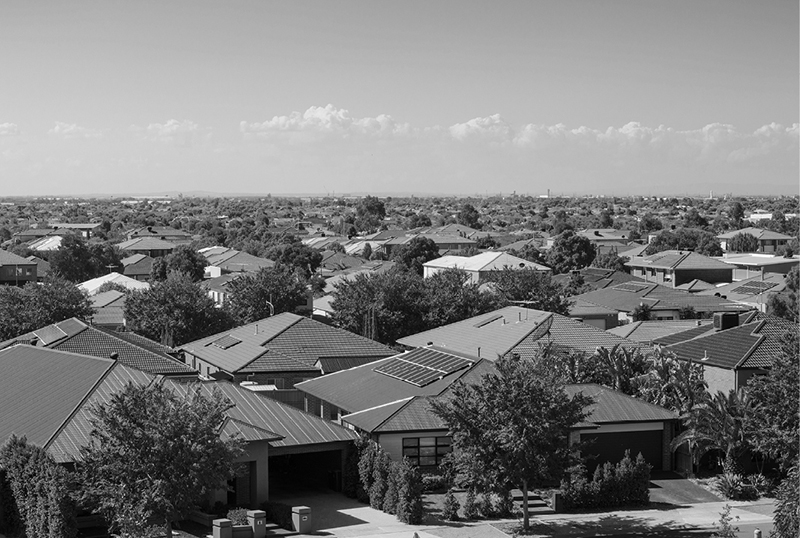If you’re weighing up whether chasing the ‘Great Australian Dream’ is worth it or not, what are some pros and cons of living in the suburbs to be aware of?
The Great Australian Dream is, in its narrowest sense, a belief that in Australia, home ownership can lead to a better life, and is an expression of success and security. Typically, the concept is owning a three bedroom home on a quarter acre block in the suburbs outside of the nation’s capital cities. The origin of the concept dates back to the period of reconstruction following World War II, and developed into a fully formed ideology during the 1950’s and 1960’s mostly due to the expansion of domestic manufacturing, low unemployment rates, the baby boom and the removal of rent controls.
Your Guide To Living In The Suburbs
Although this standard of living is enjoyed by many in the existing Australian population, social commentators have argued that rising house prices have made it increasingly difficult to achieve this, especially for Millenials and those living in large cities. Thus, the question remains – is living in the suburbs and chasing the ‘Great Australian Dream’ a realistic prospect for the everyday man, and is it even worth it anymore?
The Australian usage of the term ‘suburb’ differs from common American and British usage, where it typically means a smaller, frequently separate residential community outside, but close to, a larger city. The Australian usage is closer to the American or British use of ‘district’ or ‘neighbourhood’, and can be used to refer to any portion of a city. Unlike the use in British or American English, this term can include inner-city, outer-metropolitan and industrial areas.
Suburbs, as primarily residential parts of cities with a lower density of jobs and activity but with larger houses and more open space, tend to be home to families. Housing was the main reason given by those surveyed for why they chose to live in the suburbs, but is that the only appeal?
If you’ve been living in a city for some time and have built up a big support network, moving and living in the suburbs can be hard. However, for many people it’s a compromise that usually leads to a larger home, or your first home at that. The primary drawcard for living in the suburbs is finding a property within your price point that is bigger – both architecturally and on the land plot itself. Crime rates are usually lower, there’s less pollution, and often a greater sense of community, which makes it an attractive reason for young families to shift their lifestyles from the city and into suburbia.
However, one of the major downsides of living in the suburbs is that work commutes can be rough. Some people may have to drive one, two or even three hours each way in traffic every day just to get to work. Although this is entirely industry specific, if you don’t have the option to work from home, this can be extremely taxing and makes it harder for you to advance your career. Your options for public transport are also usually more limited, meaning less choice when it comes to escaping to the city for entertainment purposes.
While having a bigger home for less is usually the main drawcard for living in the suburbs, people tend to forget that larger homes require more furniture, and more maintenance. While this is a worthy trade off for those who love the idea of separate bedrooms for their kids or a chance to try their hand at a veggie patch in their new backyard, for some it’s an added cost that they may not have anticipated.
Living in the suburbs can resemble a new chapter of your life with your family, a savvy investment for the years to come as land prices continue to rise, or even just a way to escape the crowds and enjoy a slower pace of life. Ultimately, determining whether it’s for you or not usually boils down to your own set of circumstances and personal preferences.
Take The Stress Out Of Selling Property
A completely free service, Emergency Services Property Advisors provide property advisor services to Police, Fire, Ambulance and S.E.S personnel and their families right across Victoria.
Luke and the team at ESPA are passionate about providing support to some of Australia’s most valued public servants. Along with key industry insights, ESPA also works with a broad range of service providers linked to the real estate industry such as conveyancers, trades, legal practitioners and mortgage brokers.
If you are an emergency services worker looking to potentially buy or sell property in the future, please get in touch with Emergency Services Property Advisors today to discuss how we can turn your real estate dreams into reality, or call Luke directly on 0414 757 705.


